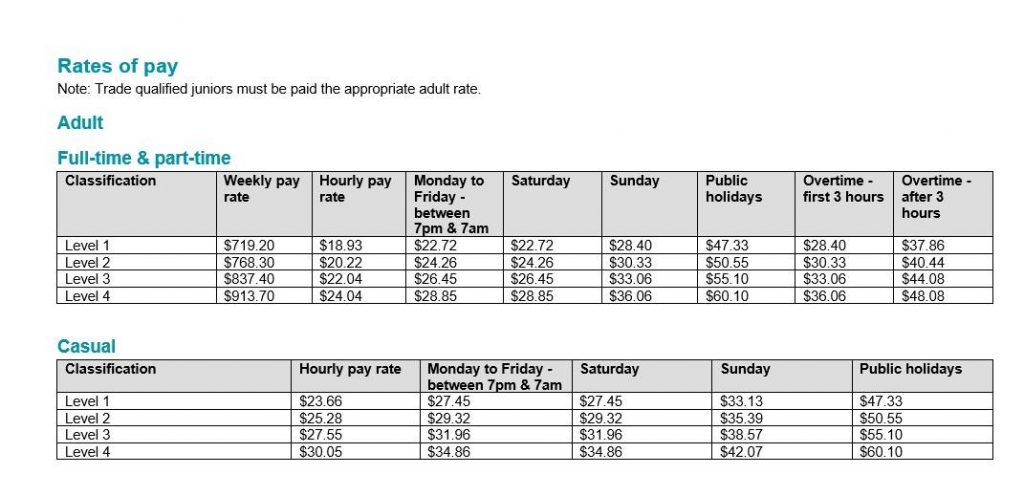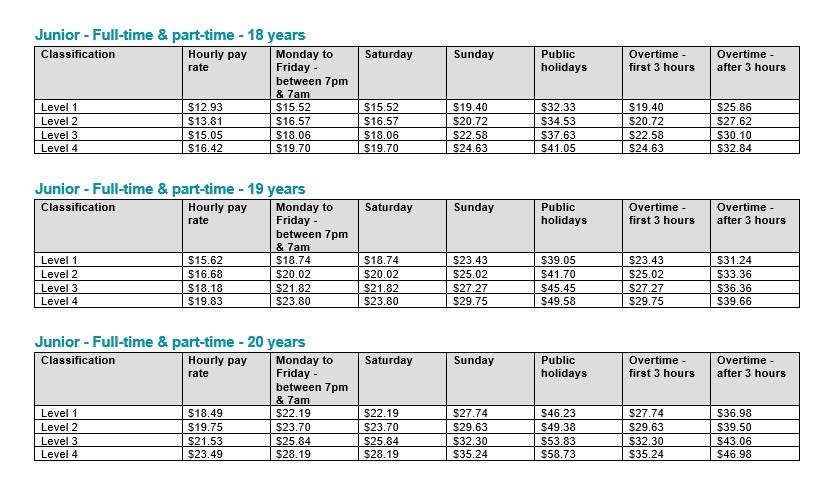A blog by Annemarie – Founder of the Australian Nanny Association
I often come across confusion in nanny job groups on social media, not only from parents but also nannies themselves, about what a live-in nanny should be paid.
Some families believe they can just offer what they believe their job is worth. Others appear to know there are minimum wage requirements but choose to ignore the legislation, hoping an inexperienced worker might not be aware.
Let’s clear up the confusion. The Fair Work Ombudsman spent almost a year in court representing an individual who had likely been engaged as a live-in au pair, but who was actually working nanny hours and duties. We first read about this story (image below) in July 2019. An agreement was reached earlier this year that the nanny was underpaid over $93K.

What does this mean?
The ATO has a Q&A community, as you can see here.
In a nutshell, in Australia the relationship is determined by the hours, how much direction and responsibility are given, and if the role is a genuine cultural exchange or study arrangement.
An au pair relationship is typically a live-in arrangement where the person has usually come from overseas to participate in, and learn about, Australian culture. The other scenario is when someone is studying, and they are living with a family and helping out in the home. A genuine au pair assists with a few household tasks, plays with the children, and receives room, board, and some pocket money in return. The role is not a professional one, and the au pair is required to have plenty of time for study and outings to immerse themselves in Australian life.
A live-in professional nanny typically works under an employer/employee relationship, where a family engages an experienced nanny/educator to live with them and provide childcare in their home. The Fair Work Ombudsman has made it clear that award rates apply to live-in employer/employee nanny arrangements. Room and board cannot be taken off to counteract the living arrangements. So, what is the point, from a family perspective, of providing a nanny with room and board if you can’t save on costs?
Well there are some benefits, such as:
- Your nanny is on site, so is unlikely to ever be late for work (keep in mind your nanny will also need privacy and time to themselves).
- Your nanny can assist with early mornings or late nights if you happen to be a shift worker (this may be part of your arrangement or mutually agreed upon in advance).
- It can establish a strong relationship between the nanny and your family.
- You can save money on the nanny’s hourly rate if it still meets the base award rates.
Market rates, for a live-out or high end live-in nanny are always above the award. At the moment, in October 2020, they are around $30 per hour on average, plus super as required. The current Miscellaneous Award pay rate guide outlines the minimum hourly rates, followed by the junior rates that are slightly lower.


If you do engage a live-in nanny, you just need to make sure you are paying them the base minimum Level 2 award rate. (Level 1 is only allowed for the first 3 months as a trial period). You may still have to pay penalties and overtime if the hours of work go over the regular hours stated in the award. E.g. outside of 7am and 7pm or more than 38 hours per week.
Penalty rates and overtime do not always come into account if you have both agreed to a flexibility clause. In that case you can either pay a higher rate of pay or discuss a flexibility clause which is 7.1 in the Miscellaneous Workers Award. When this clause is implemented it is separate and must meet a BOOT (Better Off Overall Test). The employee must be better off overall with the benefits outweighing the loss in overtime and penalty rates. Certain types of live-in arrangements that include room, board, use of recreational facilities, and utilities may be considered in this type of arrangement. It does need to legally be able to stand up in court if the arrangement was questioned. This arrangement then does slightly reduce the market rates down to the base levels of the award if both parties agree that the candidate will be better off due to the living arrangement. NOTE: It can never be below the minimum rate of the award.
Back to au pairs. Some au pairs, if given direction and working regular hours with nanny-type responsibilities, will also come under the Miscellaneous Workers Award just as the FWO court case found. In the opinion of the writer, when this happens the reality is that the role is that of a nanny and not an au pair.
Live out nanny arrangements are clear and need to adhere to the Miscellaneous Award or higher. Penalty rates are still applicable if flexibility and BOOT have not been agreed upon. It is important to be aware of the legislation and protect yourself as an employer and take care of your nanny employee. Arrangements do at times go pear shaped, therefore it is important you have made sure you have ticked all the right boxes.
Nannies can also be employed as casuals by families and agencies and they can also be self employed sole traders. In the case of a sole trader there is an ATO test to ensure that the nanny can be engaged as a genuine sole trader (Contractor).
Finally, nannies can also be engaged on fixed term contracts of any duration if they are engaged legally and are being paid under the award. Sole traders set their own rate but keep in mind their rate should be higher as they must withhold their own tax, pay their own super, and manage their administration on top of their job.
In most cases nannies tend to be employees rather than contractors.
As a parent employer it is best to seek professional advice from the experts. You can find some excellent nanny payroll services that do everything for you regarding set up, submitting payroll to the ATO, super, and Single Touch Payroll. All you have to do is submit the payment each pay period.
Some agencies run payroll for you or refer to these services.
The Australian Nanny Association is a great source of information and has a valued membership base available to support you. The ANA offers a description comparison between the two roles of nanny vs au pair.
Fair Work published their announcement on nannies and au pairs coming under the Miscellaneous Workers Award here: https://www.fairwork.gov.au/library/k600086_nannies-au-pairs-employment-status-award-coverage




